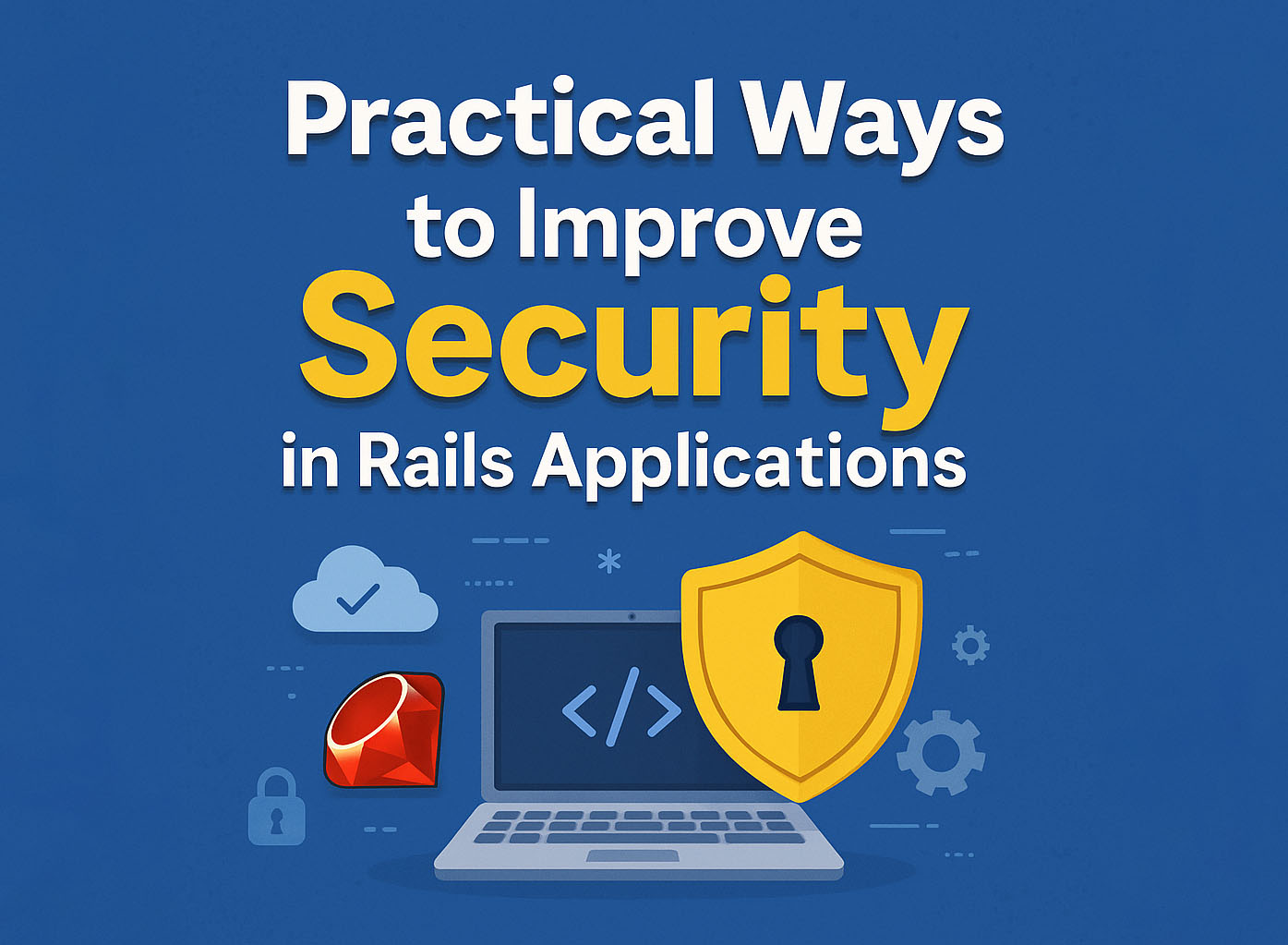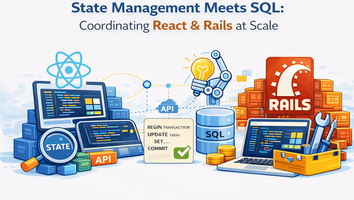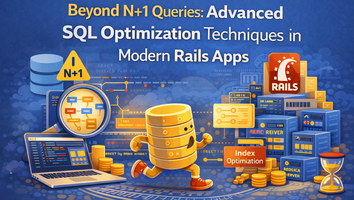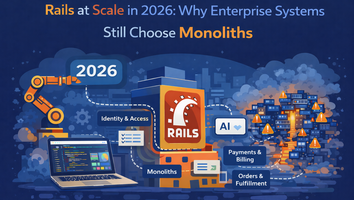In today’s digital landscape, application security is not just an optional feature but a critical necessity. Ruby on Rails, with its convention-over-configuration approach, offers developers a powerful framework to build secure, scalable, and efficient applications. However, just like any other web technology, Rails applications are not immune to security risks. Businesses must implement proactive security measures to safeguard user data, prevent breaches, and ensure trust.
At W3villa, a trusted ruby on rails consulting company, we’ve helped businesses worldwide secure their applications with proven strategies and expert insights. In this blog, we’ll explore practical ways to improve security in Rails applications and why partnering with a professional rails consultant or a skilled ruby on rails development team can make all the difference.
Why Security Matters in Rails Applications
With increasing cyber threats, data privacy regulations, and user expectations, security can no longer be treated as an afterthought. Even small vulnerabilities like SQL injection or cross-site scripting (XSS) can result in severe financial and reputational losses. Rails provides built-in features like strong parameter filtering, CSRF protection, and secure defaults, but developers must go beyond basics to create truly resilient applications.
Practical Ways to Improve Security in Rails Applications
1. Keep Rails and Dependencies Updated
Security patches are regularly released for Rails and its libraries. Running outdated versions of Rails or gems is one of the most common mistakes businesses make. An unpatched application is an easy target for hackers.
- Always update to the latest stable Rails release.
- Remove unused gems to minimize your attack surface.
How W3villa helps: Our ruby on rails consulting services include dependency management and routine code audits to ensure your application is always protected against known vulnerabilities.
2. Implement Strong Authentication and Authorization
User authentication and role-based authorization are the backbone of application security. Weak authentication mechanisms can lead to account takeovers.
- Use established gems like Devise for secure authentication.
- Enforce multi-factor authentication (MFA).
- Implement role-based access controls (RBAC) to ensure users only access data and features relevant to them.
Pro tip: Always store passwords securely using strong hashing algorithms like bcrypt.
3. Secure Sensitive Data with Encryption
Handling sensitive data like payment details, personal information, or confidential business data requires strong encryption practices.
- Encrypt sensitive data at rest with Rails’ Active Record Encryption.
- Use HTTPS everywhere by enforcing SSL/TLS.
4. Prevent SQL Injection
SQL Injection attacks can manipulate database queries, leading to unauthorized access or data leaks.
- Always use parameterized queries with Active Record.
- Avoid using string interpolation in queries.
- Validate and sanitize user inputs.
Rails’ ORM is inherently safe against SQL injection, but improper coding practices can still introduce vulnerabilities. This is where a professional rails consultant can review your queries and ensure secure practices.
5. Protect Against Cross-Site Scripting (XSS)
XSS attacks inject malicious scripts into web pages viewed by other users.
- Escape all user input with Rails’ built-in helpers.
- Use the Content Security Policy (CSP) to block unauthorized scripts.
- Regularly test your application for XSS vulnerabilities.
6. Defend Against Cross-Site Request Forgery (CSRF)
Rails automatically includes CSRF tokens in forms to prevent unauthorized requests. However, developers must not disable this feature.
- Validate authenticity tokens for state-changing requests.
This small step alone prevents one of the most common attack vectors in web applications.
7. Use Secure Session Management
Session hijacking is a real risk if sessions are not handled properly.
- Store sessions in secure cookies.
- Avoid storing sensitive information directly in sessions.
8. Implement Secure File Uploads
Applications that allow file uploads are prone to malicious file injection.
- Validate file types and sizes before uploading.
- Use libraries like CarrierWave or Active Storage with strict validation rules.
- Store files outside of the public directory.
9. Regular Security Testing and Audits
Even with the best practices, security must be continuously validated.
- Conduct penetration testing and vulnerability scanning.
- Use tools like Brakeman to scan your Rails code for vulnerabilities.
- Schedule periodic security audits with an experienced ruby on rails consulting company.
At W3villa, our ruby on rails development team specializes in identifying vulnerabilities early and providing actionable fixes.
10. Educate Your Development Team
A secure application starts with a knowledgeable team. Developers must be aware of the latest threats and best practices.
- Provide security training for your Rails developers.
- Create secure coding guidelines and enforce code reviews.
- Encourage a culture where security is prioritized over shortcuts.
Why Choose a Ruby on Rails Consulting Partner for Security?
While developers can implement many of these measures, partnering with a specialized ruby on rails consulting company ensures your application benefits from expert-driven strategies and industry best practices.
Here’s how W3villa supports businesses with secure Rails development:
- Dedicated Rails Consultants: Our rails consultant team analyzes your application’s architecture, codebase, and deployment to identify potential risks.
- Customized Security Solutions: From implementing authentication to encrypting data, our ruby on rails consulting services are tailored to your unique business needs.
- Proactive Monitoring: We don’t just fix vulnerabilities—we continuously monitor your application to stay ahead of emerging threats.
- Experienced Development Team: With years of experience, our ruby on rails development team ensures every line of code is written with security in mind.
Final Thoughts
Securing a Rails application is not a one-time activity—it’s an ongoing process that requires vigilance, best practices, and expert guidance. By updating dependencies, implementing strong authentication, encrypting sensitive data, and regularly testing your application, you can significantly reduce security risks.
However, achieving comprehensive security requires experience and foresight. That’s why businesses across industries trust W3villa as their go-to ruby on rails consulting company. With our expert rails consultants and a dedicated ruby on rails development team, we ensure your applications remain robust, compliant, and secure against evolving threats.



